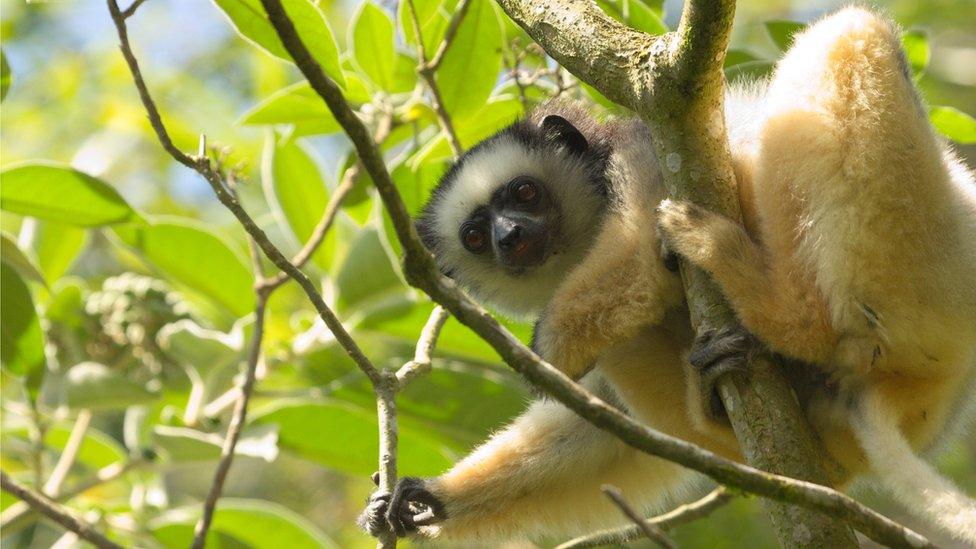Climate Change: Global warming and deforestation driving monkeys and lemurs down from trees
- Published
- comments

Climate change is forcing many species of monkeys and lemurs that normally live high in trees spend more time on the ground, a new study has found.
Experts say that global warming and deforestation are driving the primates to the forest floor more frequently so they can search for food, water and shelter.
Spending more time on the ground may help to protect some species from some of the effects of warming temperatures.
However, scientists have warned that not all species are able to adapt to this change, leaving some potentially more in danger than others.
What did scientists find?
In the study, published in the journal Proceedings of the National Academy of Sciences, an international team of scientists looked at more than 150,000 hours of data on several different lemur and monkey species at various sites in the Americas and Madagascar.
They found that among many tree-living primates, the hotter the environment, the longer they spent on the ground.
The same was true in areas which were more deforested - fewer trees made it warmer so the animals largely adapted by moving down from the trees.
Researchers also looked at others factors too, such as whether humans might have an impact on this behaviour.
Other than humans, lemurs are one of the only primates that can have blue eyes!
If the monkeys lived near to roads or where humans lived - in places where they were more likely to come into contact with humans - then the opposite was true and the monkeys spent more time in trees and were less likely to come down to the forest floor.
Experts added that this could suggest that the presence of humans could get in the way of these species being able to adapt to climate change.
Scientists said that for these species, conservation plans would be needed to help ensure their survival.
